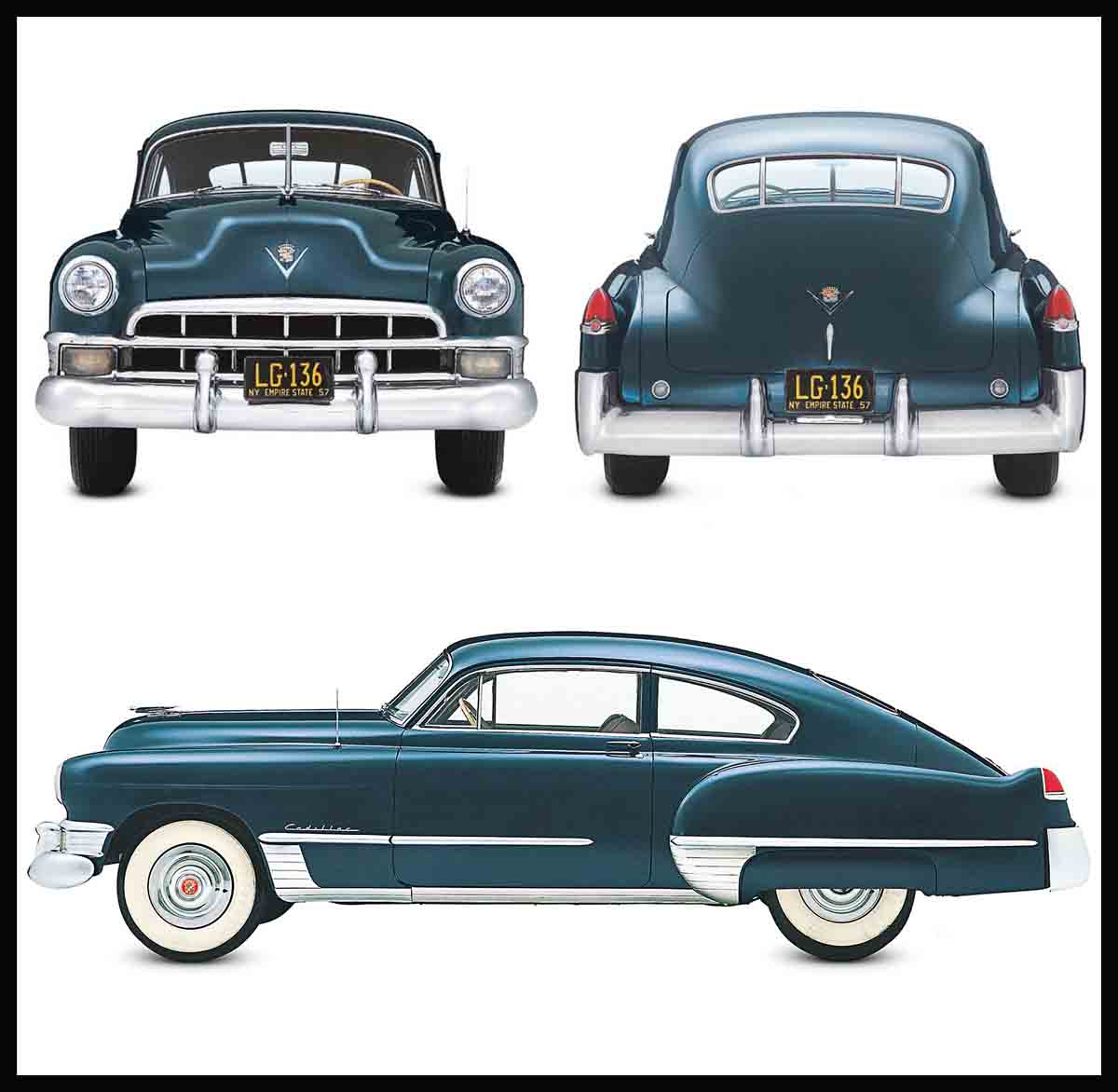
American Trendsetters Cars
US car-makers big and small kept buyers interested in the latest models by accelerating the introduction of bold, new, full-width styling and by updating designs annually as the 1940s wore on. Pioneering technical advances, such as automatic transmission, made American cars easier to drive, while big six-cylinder and V8 engines used ever greater quantities of fuel, which was cheap and abundant, to provide more power and refinement than ever before. This was an era of change in the industry, with big conglomerates increasingly dominating the market and selling cars for prices that smaller companies were unable to match.
Cadillac Series 62 Club Coupe 1949
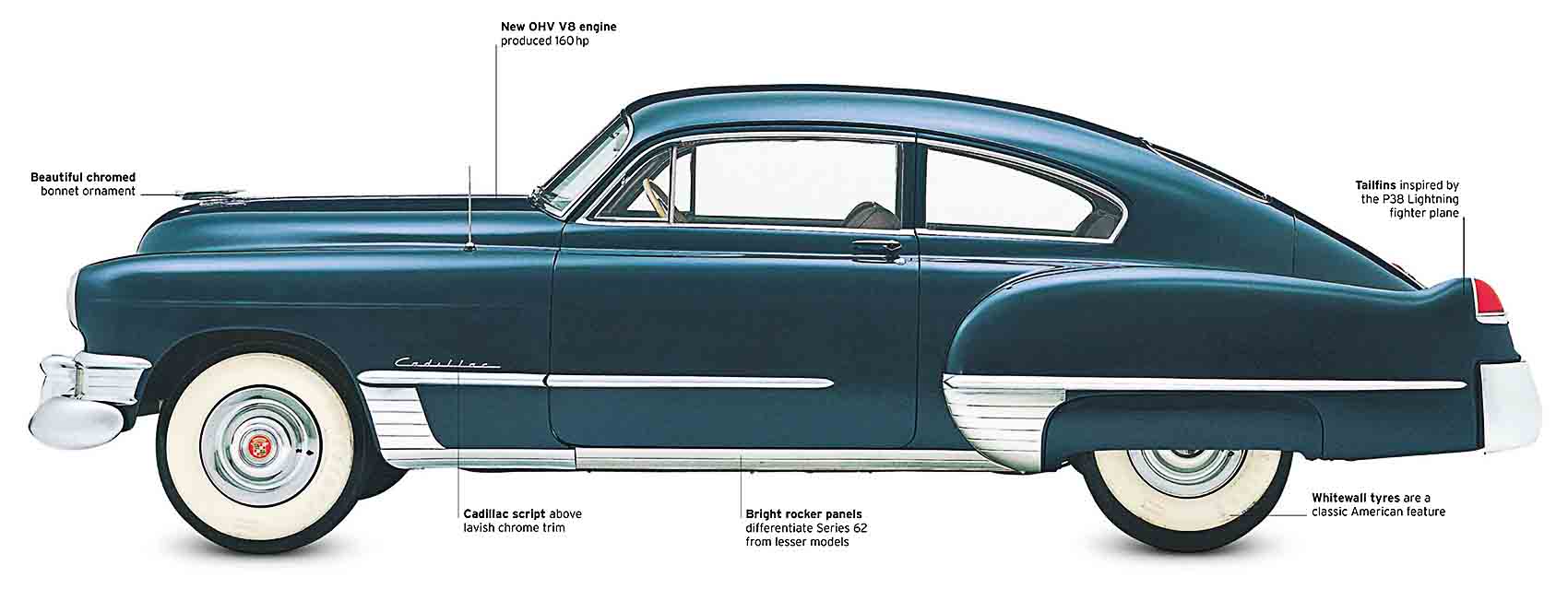
| Origin | USA |
| Engine | 5,424 cc, V8 |
| Top speed | 92 mph (148 km/h) |
General Motors’ 1948 body design featured tailfins inspired by the Lockheed P38 Lightning fighter plane. After ten years in the making, 1949 saw the introduction of a sophisticated new OHV engine. Smaller and lighter than its predecessor, it delivered more power and achieved better fuel economy.
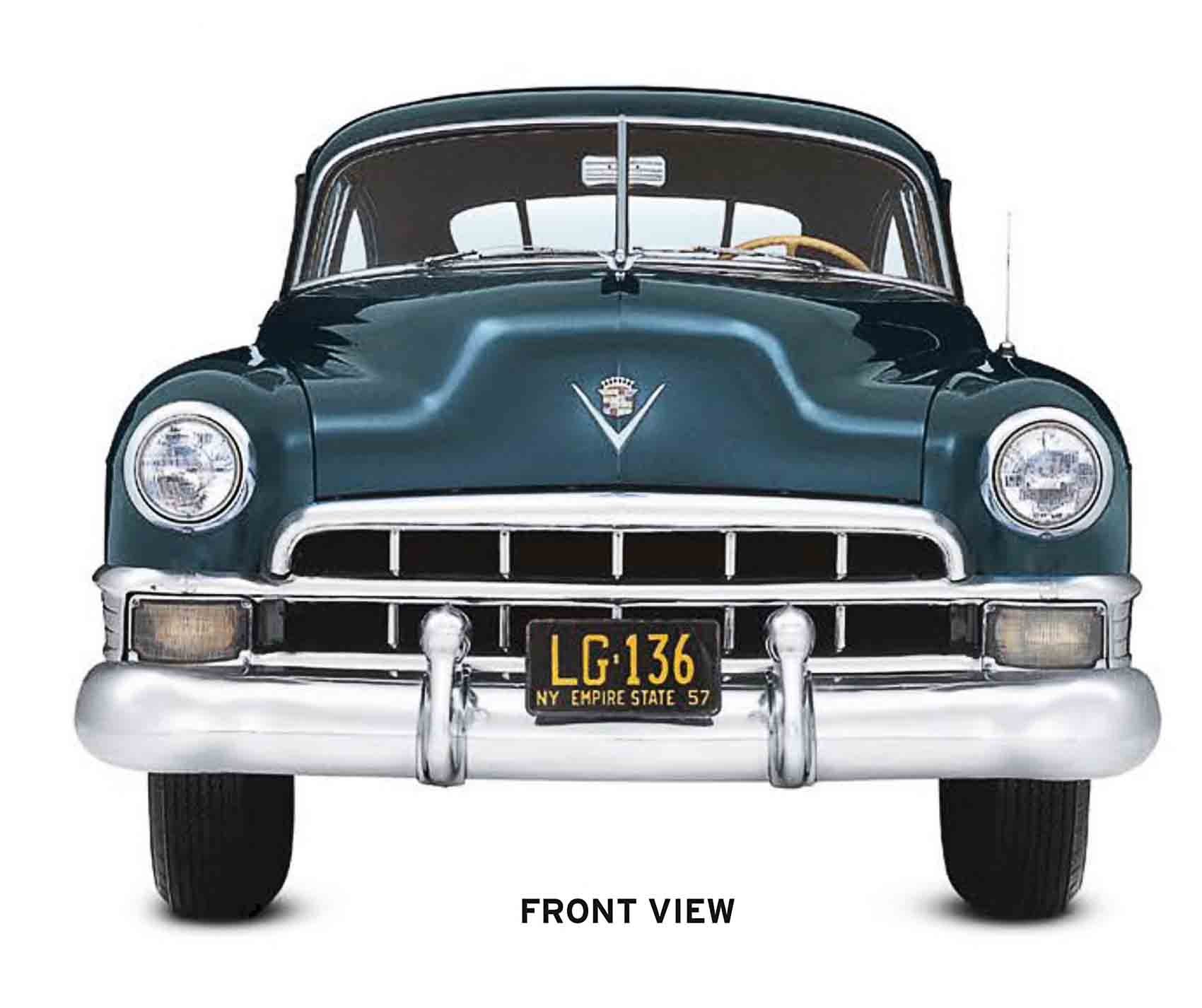
Cadillac crest
The Cadillac company was named after Frenchman Antoine Lamet de La Mothe, sieur de Cadillac, the founder of the city of Detroit. The imposing emblem on the front of the car was based on his coat of arms.
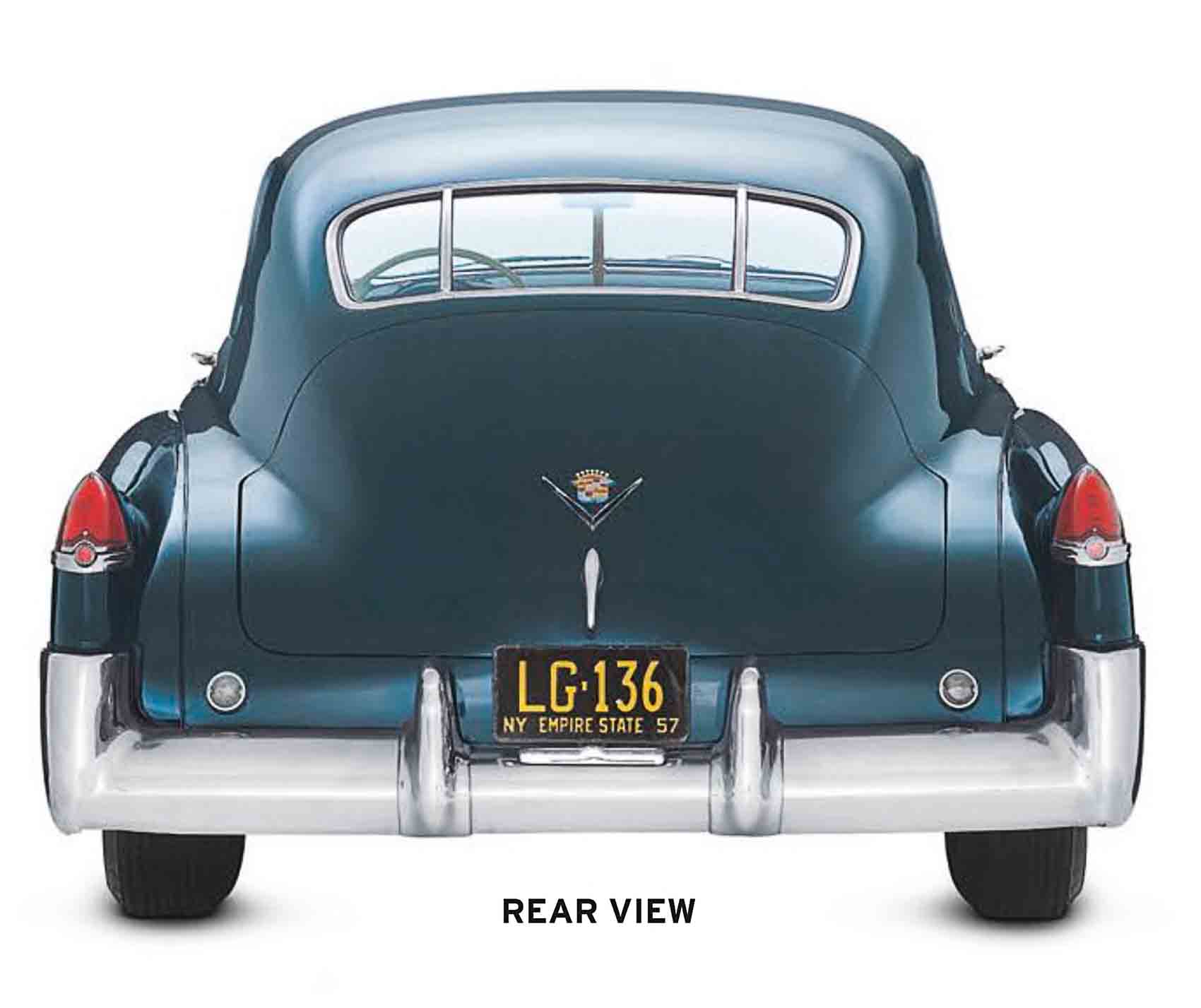
Fantastic fins
The subtle fins of the Series 62’s were merely the beginning. Fins grew and grew over the next few years, reaching their maximum at the end of the 1950s.
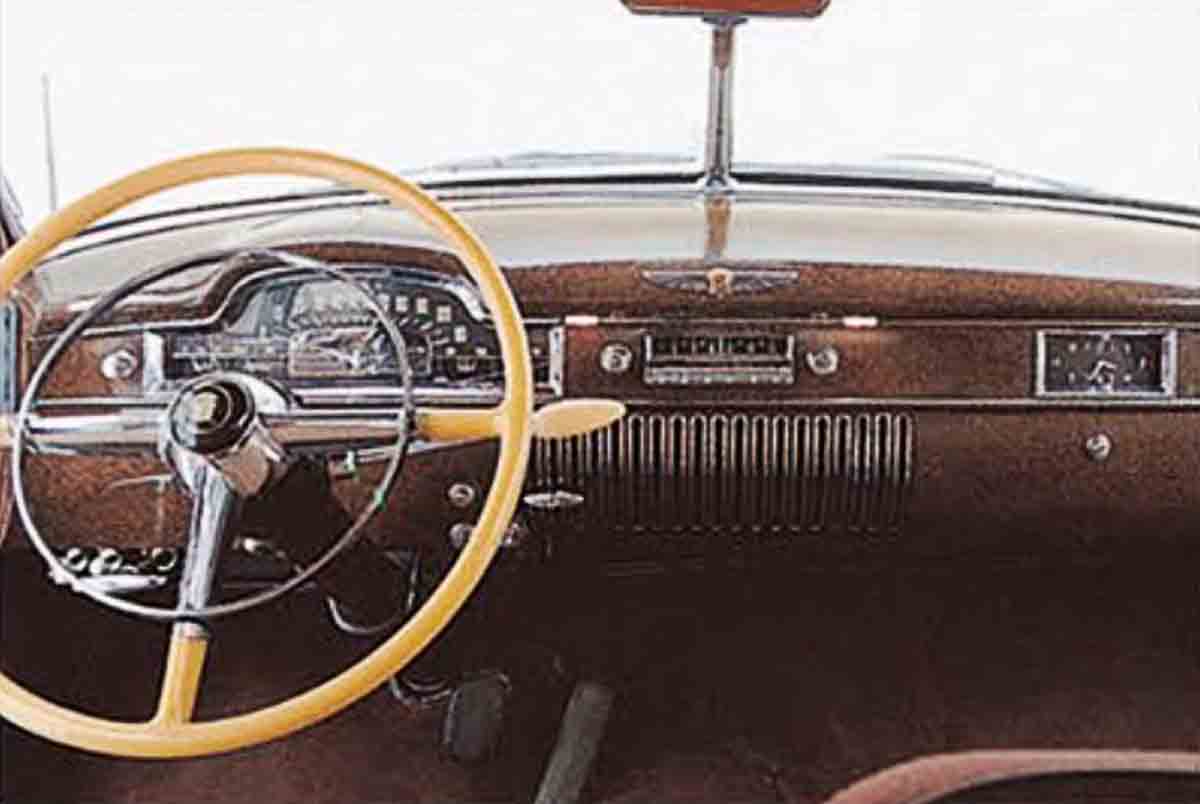
Chrome and comfort
While Cadillac made high-quality cars with well-appointed interiors, they were a world away from the traditional wood veneer of British premium cars. Painted finishes, chrome plate, and materials, such as vinyl and Bakelite, were used to produce modern cabins with every luxurious feature available.
Hudson Super Six 1948
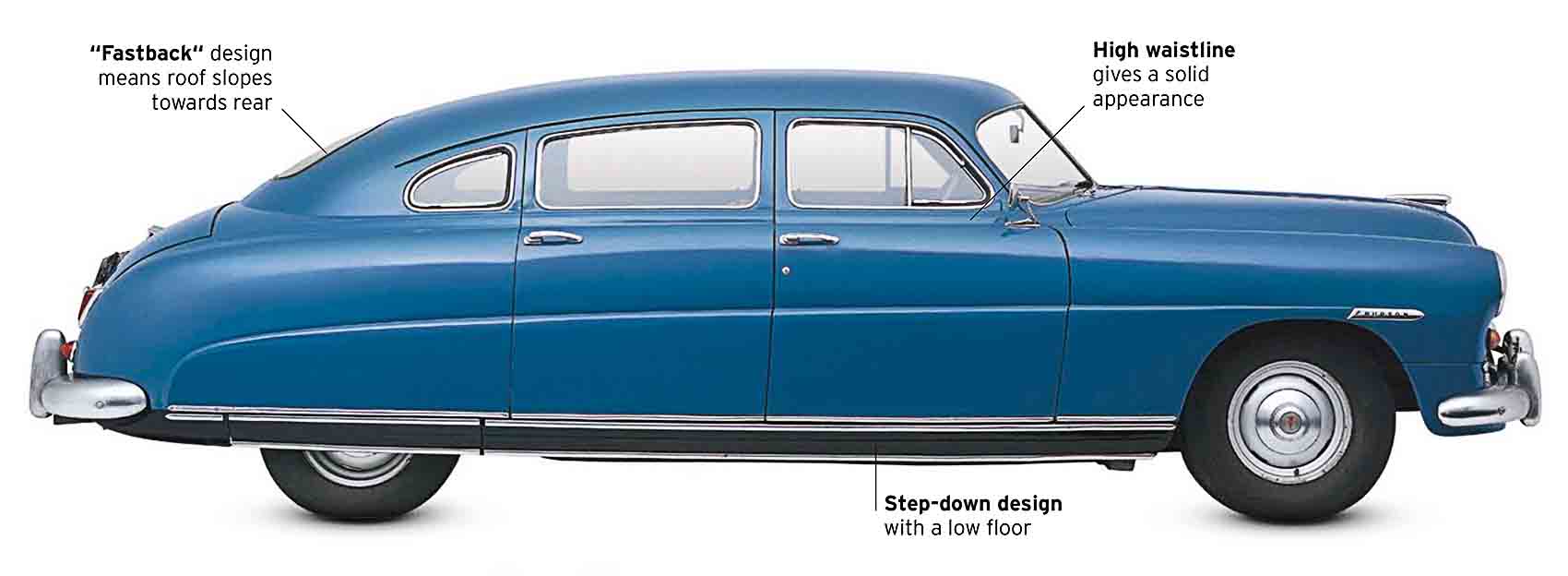
| Origin | USA |
| Engine | 4,293 cc, straight-six |
| Top speed | 90 mph (145 km/h) |
One of the few small firms in post-war US car production, Hudson excelled with its low-built “step down” 1948 models and powerful new Super Six engine. In 1951 the Super Six evolved into the Hudson Hornet, which dominated American stock car racing from 1951-54.
Ford Custom V8 1949
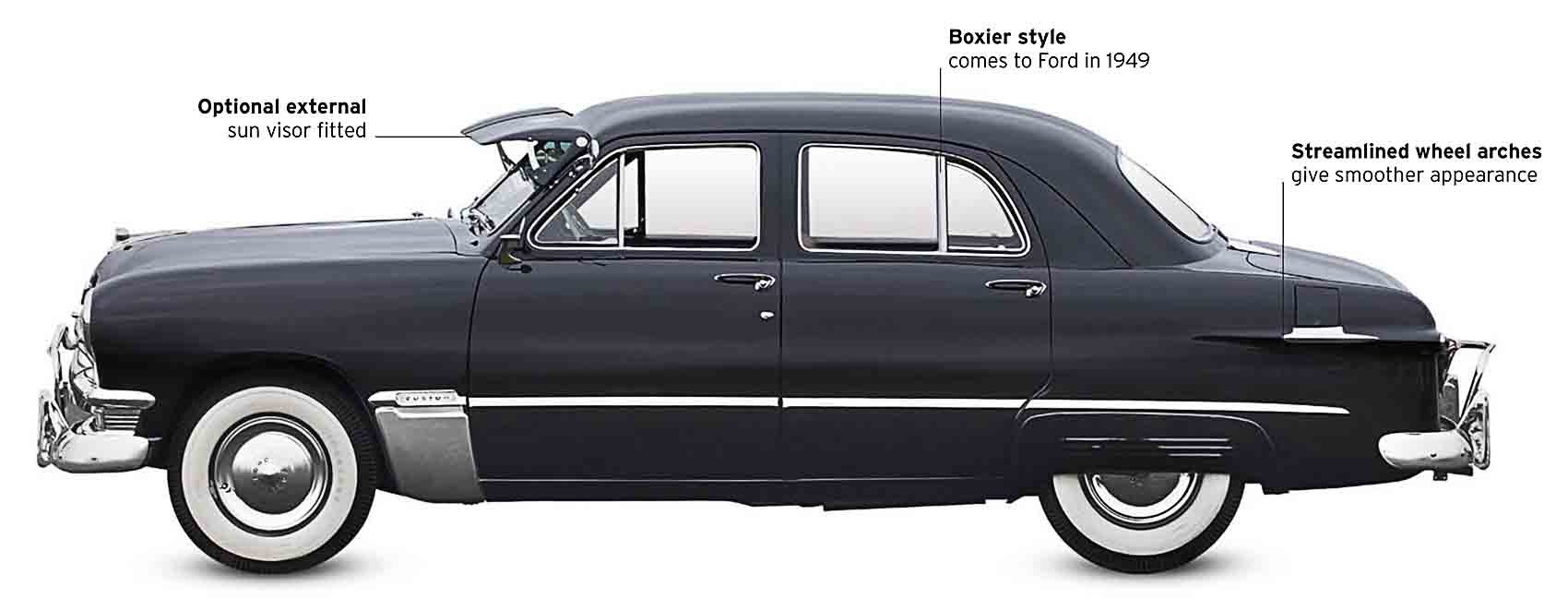
| Origin | USA |
| Engine | 3,917 cc, V8 |
| Top speed | 85 mph (137 km/h) |
Ford’s new styling arrived in 1949. It was clean, low, modern, and boxy—features that were soon seen on European Fords, too. Power came from developments of two prewar engines: an L-head straight-six, and the famous Flathead V8.
Pontiac Chieftain Convertible 1949
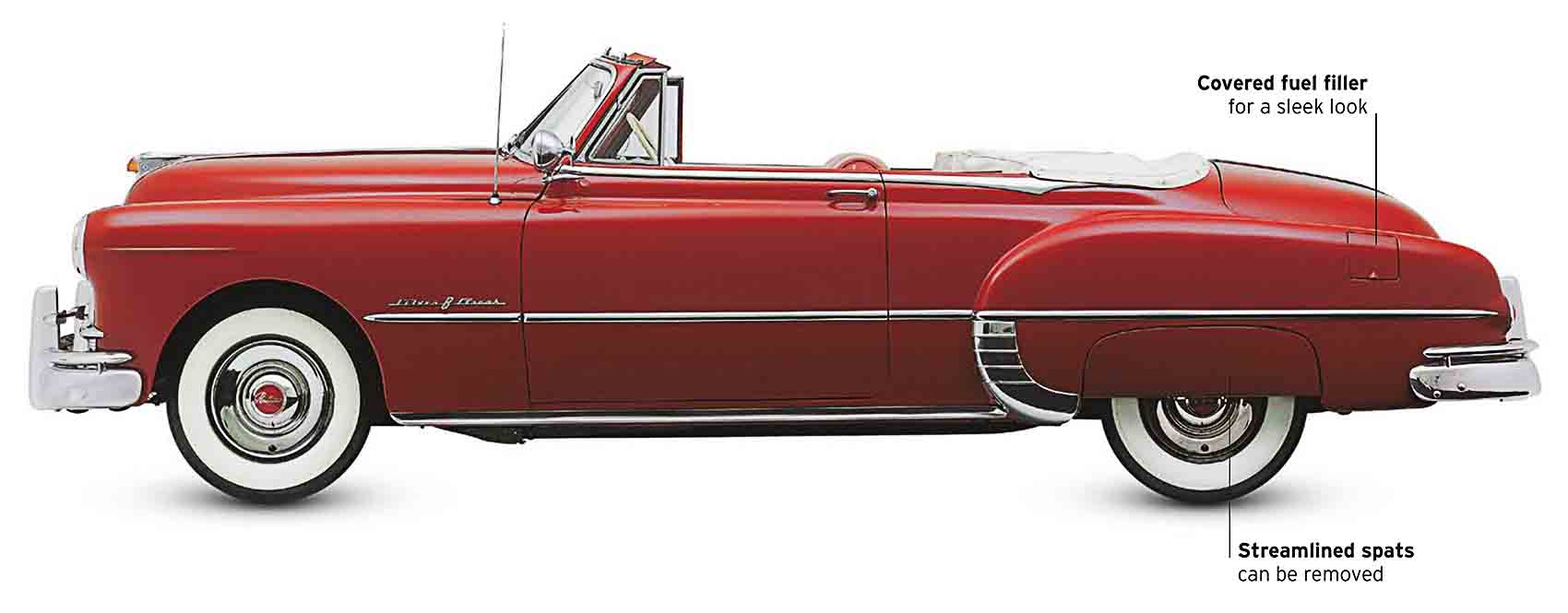
| Origin | USA |
| Engine | 4,079 cc, straight-eight |
| Top speed | 85 mph (137 km/h) |
Low, sleek, full-width bodies were the hit of 1949 at Pontiac. Chieftains could be customized with a long list of extras, including a valve radio, seat heaters, and even a Remington shaver. Power brakes and air conditioning were available later. The model continued until 1954.
Studebaker Champion 1947
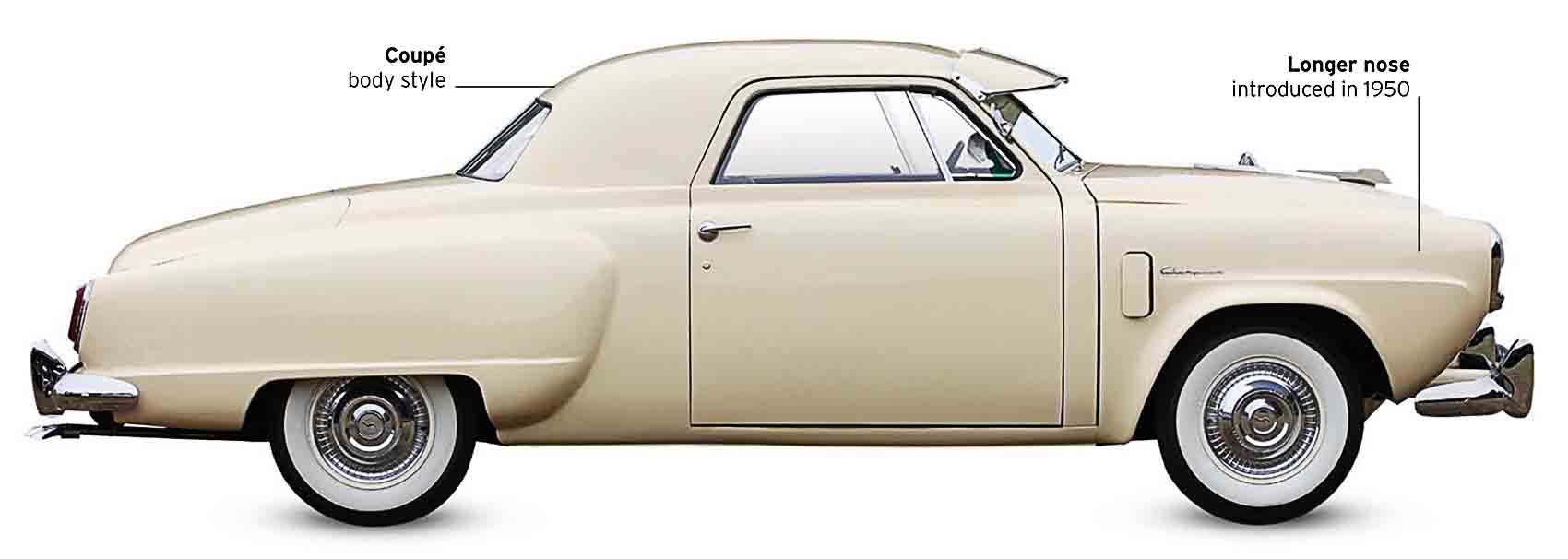
| Origin | USA |
| Engine | 2,779 cc, straight-six |
| Top speed | 82 mph (132 km/h) |
In 1947 Studebaker was the first big name to introduce post-war styling. By 1950 the Champion was on to its first major revision, with a longer nose, a more powerful engine, and automatic transmission. Two-door and four-door saloons, station wagons, coupes, and even convertible models were available.
It is a quote. The Classic Car Book – The Definitive Visual History 2016




